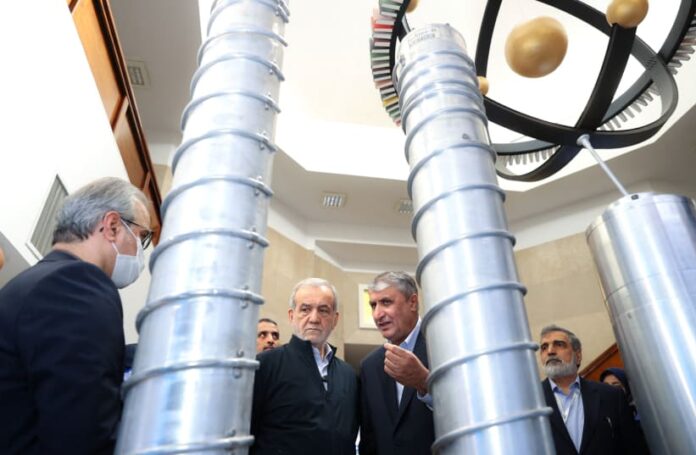TEHRAN/ROME — As diplomatic negotiations over Iran’s nuclear program gather momentum, the head of the International Atomic Energy Agency (IAEA), Rafael Grossi, issued a stark warning on Wednesday, stating that Iran is “not far” from the capability to produce a nuclear bomb.
Speaking to French newspaper Le Monde, Grossi emphasized, “Iran has the pieces, and they could eventually put them together one day.”
Grossi’s comments came just hours before he arrived in Tehran, where he met with Iranian Foreign Minister Abbas Araghchi in a bid to reinforce the IAEA’s role as the primary monitor of any future nuclear agreement.
The agency chief underscored the importance of international oversight, warning that, “Without us, any agreement is just a piece of paper.”
While Iran maintains that the IAEA should be solely responsible for verification and monitoring, the U.S. administration has yet to commit to a position.
Meanwhile, Israel has reportedly been lobbying Washington to take a direct supervisory role, signaling broader regional concerns over Iran’s expanding nuclear program.
The renewed diplomatic push follows a first round of talks held in Muscat, Oman, last weekend between U.S. and Iranian delegations — the first such meeting under U.S. President Donald Trump.
Despite his administration’s repeated threats of military action if a deal is not reached, initial discussions were described by both parties as “positive and constructive.”
A second round of negotiations is now set to take place in Rome this Saturday, following a last-minute venue change from Oman.
Italian Foreign Minister Antonio Tajani confirmed Italy’s role as host but stressed that Rome would not intervene in the negotiations. “Italy simply wants to be a bridge for peace; we have no ambitions of any kind,” he stated.
Still, the change of location drew criticism from Iranian officials. Esmaeil Baghaei, a spokesperson for Iran’s foreign ministry, likened the move to “shifting the goalposts,” warning it could jeopardize progress.
One of the most significant sticking points remains Iran’s uranium enrichment program. Speaking ahead of the Rome talks, Foreign Minister Araghchi reiterated that Iran’s right to enrich uranium is “nonnegotiable.”
Responding to comments from U.S. envoy Witkoff demanding that Iran “stop and eliminate its nuclear enrichment,” Araghchi said, “We’re ready to build confidence in response to possible concerns, but the principle of enrichment is nonnegotiable.”
Meanwhile, Iranian state media reported that Araghchi is set to travel to Moscow to deliver a message from Supreme Leader Ali Khamenei to Russian President Vladimir Putin.
The move comes amid reports that Washington has proposed transferring Iran’s enriched uranium to a third country — possibly Russia — as part of a potential deal. Tehran is widely expected to reject the proposal.
The Kremlin declined to comment on Tuesday regarding Russia’s potential role in storing Iranian uranium stockpiles. Britain’s Guardian newspaper also reported Tehran’s likely refusal to accept such terms.
With tensions high and the international community closely watching, the upcoming Rome negotiations could prove pivotal. Grossi, who has been invited to attend the talks, represents what may be the last remaining bridge between transparency and distrust in the ongoing nuclear standoff.

